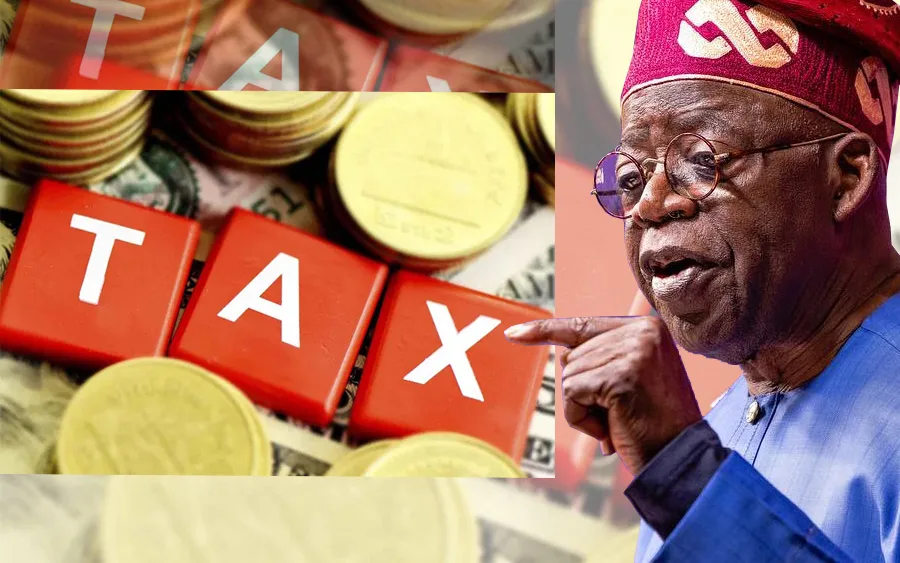The current debates surrounding Nigeria’s tax reform bills have sparked discussions across the political and business spectrum. However, at the heart of these discussions lies a crucial issue – the need to modernize Nigeria’s tax administration system.
In 2024, the Nigerian government took a significant step towards overhauling the nation’s tax system, as outlined in the manifesto of President Bola Ahmed Tinubu during his campaign. One of the key objectives was to reform the country’s tax laws, aligning them with international best practices while also addressing long-standing inefficiencies in tax collection.
Join our WhatsApp ChannelThe reform, spearheaded by the Presidential Committee on Fiscal and Tax Reforms under the leadership of Taiwo Oyedele, was designed to address these challenges. The committee’s bill, which has already been approved by the Federal Executive Council and forwarded to the National Assembly, aims to bring sweeping changes to Nigeria’s tax system, such as reducing tax fragmentation, simplifying tax processes, and integrating tax collection functions across federal, state, and local governments.
“This reform is about improving the country’s economic landscape, making the tax system more efficient, and ensuring that Nigeria can generate the revenue necessary for its sustainable development,” said Taiwo Oyedele during an interview.
Despite the promising potential, the bill has faced significant opposition from several quarters. Northern governors, for instance, have rejected the bill, particularly its provisions for VAT collection and distribution. However, experts remain firm in their belief that the reform is crucial for Nigeria’s economic future.
Experts Weigh In: Why Tax Reform Bills Are Essential
The proposed tax reform bills have sparked a great deal of controversy in Nigeria, with detractors voicing concerns about their potential impact on specific regions. However, the overwhelming consensus among experts is that these reforms are essential for the country’s economic health and growth.
In a recent interview, Dr. Ngozi Okwuosa, an economist, stated, “The current tax system in Nigeria is riddled with inefficiencies. From multiple taxations at different government levels to a lack of clear structures, it’s a system that’s not working. The proposed reforms aim to fix this by creating a more streamlined, transparent process.”
The tax reforms outlined in the bill include a range of measures such as an increase in VAT, the implementation of a 27.5% company income tax for larger firms, and the introduction of a 4% development levy on company profits. These reforms are expected to increase tax-to-GDP ratio, a key indicator of a country’s ability to generate revenue through taxation.
READ ALSO: Tax Reform Bills Bridging Regional Divide
Another crucial aspect of the bill is its push for VAT exemptions on specific goods and services, such as military equipment, electricity generation, and products for humanitarian projects. These provisions are designed to balance the need for increased revenue generation with the economic realities faced by certain industries and individuals.
Dr. Adewale Alabi, a tax policy advisor, explained the importance of these adjustments: “In order to promote fairness in taxation, some exemptions are necessary. However, the overall thrust of the bill is to broaden the tax base, making sure that more Nigerians contribute to the national economy.”
Addressing Regional Concerns
While the tax reform bills are largely seen as a necessary step for Nigeria’s economic modernization, they have also sparked concerns about their regional impact. Northern governors, in particular, have expressed opposition to certain aspects of the reforms, particularly the changes to VAT distribution. They argue that the new model, which is based on a derivation system, could unfairly disadvantage Northern states.
Dr. Chuks Nathaniel, an economist, responded to these concerns, stating, “It’s important to clear the misconception that these reforms are against the North. The reforms are designed to be more equitable. They aim to create a fairer system for all states, irrespective of their geographical location or economic status.”
The Northern governors’ concerns stem from the proposed amendments to the Value Added Tax (VAT) system, which would shift the focus from a consumption-based model to one based on regional contributions. While this could affect the distribution of VAT revenues, the reforms are intended to address the long-standing inequities in the existing system, where wealthier states with larger populations often receive a disproportionate share of the VAT.
Challenges Ahead: What Needs to Happen?
Despite the support from economic experts, the tax reform bills have faced significant challenges in the National Assembly. Following opposition from some political groups and regional leaders, the National Economic Council (NEC) recently recommended withdrawing the bills for further consultation. However, President Tinubu has rejected this recommendation, believing that the legislative process is the appropriate avenue for addressing concerns.
“While I appreciate the concerns raised, I believe that the ongoing discussions in the National Assembly provide a perfect platform to engage with stakeholders and ensure that the final version of the bill works for all Nigerians,” said President Tinubu in a statement.
For the reform to succeed, the government must continue to engage with various stakeholders, including governors, businesses, and civil society groups. A balanced approach that addresses regional concerns while ensuring the overall effectiveness of the tax system will be crucial.
The Need for Change
The proposed tax reform bills are not without controversy, but they represent a necessary step toward modernizing Nigeria’s tax system and ensuring the country can generate sufficient revenue to meet its development goals. As experts have emphasized, the current system is outdated and inefficient, and these reforms could pave the way for a more equitable and sustainable tax structure.
With continued engagement and consultation, the tax reform bills could ultimately help Nigeria achieve a more competitive, transparent, and efficient tax system that benefits all citizens.
Emmanuel Ochayi is a journalist. He is a graduate of the University of Lagos, School of first choice and the nations pride. Emmanuel is keen on exploring writing angles in different areas, including Business, climate change, politics, Education, and others.


















